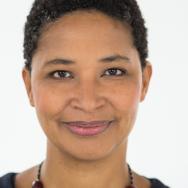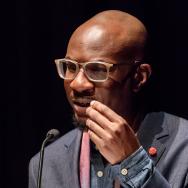For acclaimed vocalist Ian Bostridge, classical music compositions count among the world’s most indispensable works of art—ones that should be as much a part of shared human experience as the poetry of Shakespeare, the paintings of Matisse and the novels of Charles Dickens.
The three-time Grammy Award winner seeks to help audiences connect to the resonance of classical music, and how the form expresses ideas of existence, love and loss and the inevitability of death.
This month, Bostridge will amplify that conversation as part of the Randy L. and Melvin R. Berlin Family Lectures, hosted annually by the Division of the Humanities at the University of Chicago. His lecture series, “Musical Identities,” will begin April 11 and continue April 17 and 24. Each presentation will be held virtually from 1 to 2:30 p.m. CDT. Registration for the series is free and open to the public.
Since 2014, the Berlin Family Lectures have showcased individuals who are making fundamental contributions to the arts, humanities and humanistic social sciences. Past speakers have included political theorist Danielle Allen, Nobel laureate Mario Vargas Llosa and scholar Lawrence Lessig.
In addition to being a skilled performer, Bostridge also studied for his doctorate at the University of Oxford, and is an expert on composers such as Mozart, Schumann and Monteverdi. In this edited Q&A, the singer expresses how music tackles big issues such as identity, death and gender in distinct ways. He also discusses how the humanities can help enlarge our definition of what it means to be human.
Has classical music, and the humanities more broadly, felt even more relevant to you during the pandemic?
The classical music repertoire is a solace, a large structure for considering our humanity and for showing us the best in being human. Classical music has the capacity to slow things down and help us to concentrate. In modern life, we are often fractured and besieged with science. Music is an anecdote.
The relevance of the humanities is harder to define than it is, for instance, for STEM topics. Humanists, however, are the ones who approach human issues beyond survival. This is especially relevant during the global pandemic. I sincerely hope our culture keeps its adherence to the humanities and deals with essential human questions and preserves its creativity.
How does the ability of music to express tough subjects such as death and gender drive your theme of “Musical Identities” for the Berlin Family Lectures?
“Musical Identities” explores where the musical compositions come from and how one performs them. As a performer, I consider how these works feel to me.
In Benjamin Britten’s church opera Curlew River, a female protagonist is played by a male singer. As a performer, I could treat the question of gender in different ways. During my performance, the question of gender did not really affect the way I performed in the part. I felt the part was more about keeping a distance—emotional reticence—when emotion is overwhelming.
Music allows us to approach issues of loss and absence and gender and death in ways we cannot do with other mediums.
Why were you drawn to the format of the lectures, extended over three weeks? What do you hope audiences will take away?
This series of three lectures on the theme of “Musical Identities” is both intriguing and challenging. It’s one of the most difficult things I have ever done. Most of all, I want to continue the legacy of humanistic inquiry that the Berlin Family Lectures cultivate through these series of lectures with a variety of presenters.
I hope audiences will listen to the music that I play. If I can get them to connect with some of the music I love, then they will be intrigued.
How did you decide to devote your career to being a tenor after first pursuing academia?
My singing career evolved quite slowly. When I was studying for my doctor in philosophy at Oxford, verbal attacks on universities made it seem like a bleak time to be hired in academia. After I earned my DPhil, I worked in television for a few years in London. During that time, I entered singing competitions and acquired an agent.
At the end of two years in television, I received a research fellowship at Oxford. I organized my time, so I could work as a research fellow and a singer. But it was very difficult to juggle both. Eventually, I chose to sing full-time.
How do you integrate the knowledge you learned in obtaining your DPhil and teaching to your skill as a tenor?
I always intended to carry on writing while I was a singer. I finished my first book Witchcraft and Its Transformations c. 1650-1750 (1997), when I was singing and traveling. I discovered, however, that it’s not easy to write books while being a full-time singer. Most of the time, I have written multiple articles for publications such as The New York Review of Books, which formed the basis for my second book, A Singer’s Notebook (2015). I wrote my third book about Schubert—Schubert’s Winter Journey: Anatomy of an Obsession (2018)—which has been received much better than I expected and translated into 12 languages.
My approach to writing books is not scholarly; it’s more free form and playful. I spend time researching and writing about different aspects of music than the traditional academic would.

